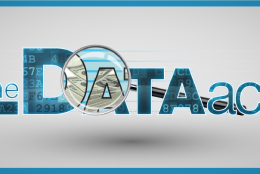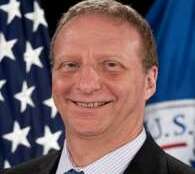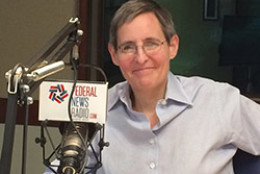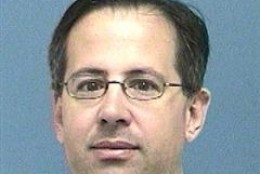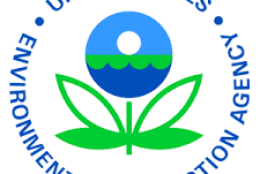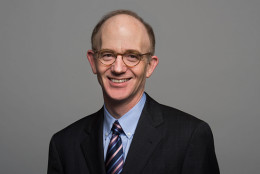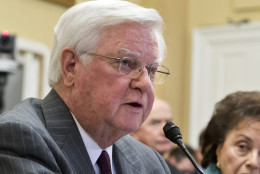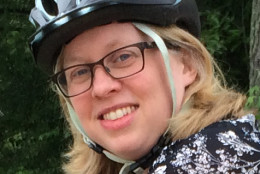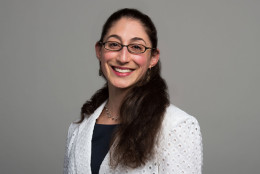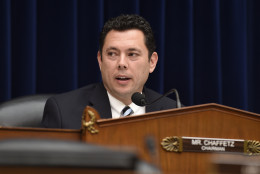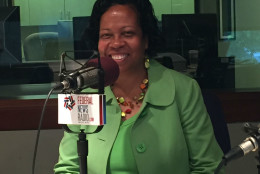Environmental Protection Agency
-
A new report from HUD's Inspector General says the agency's inconsistent management and indecision is causing it to fall behind on DATA Act implementation.
September 02, 2016 -
Mark Schwartz, the U.S. Citizenship and Immigration Services chief information officer, said he’s implementing something called impact mapping to better manage how his agency uses dev/ops to move off legacy systems.
August 19, 2016 -
DHS, EPA, 18F and others are developing separate contracts for dev/ops services, creating both a much needed culture change, but possibly also another area where contract proliferation and duplication reign.
August 08, 2016 -
The Environmental Protection Agency's forthcoming agile blanket purchasing agreement could be worth up to $200 million. Last week, the EPA technology shop hosted a standing-room-only vendor day for agile software companies. EPA Chief Information Officer Ann Dunkin joins Federal Drive with Tom Temin with more on the day and the strategy.
August 03, 2016 -
A new report from GAO found that the top three benefits of telework reported by agencies were improved recruitment and retention, improved work-life balance and increased productivity.
August 02, 2016 -
Following two years of work, the EPA has put out final rules for methane gas emanating from municipal landfills. Joining Federal Drive with Tom Temin with what went into this rule-making, David Cozzie, group leader for fuels and incineration at the EPA.
July 29, 2016 -
The Environmental Protection Agency has a policy of making sure its regulatory actions take into account what the agency calls environmental justice. It's proving its analysis with detailed technical guidance to make sure work is consistent across the agency. Kelly Maguire, an economist EPA's Office of Policy and Charles Lee, EPA's deputy associate assistant administrator for environmental justice, tell Federal Drive with Tom Temin what this all means.
July 22, 2016 -
Burdened by student debt, the youngest federal employees are entering the workforce later than their predecessors. As part of a Federal News Radio special report, What Millennials Really Want from Federal Service, most young employees said they'd prefer to stay in government, as long as they have opportunities to develop their skills, careers and benefits.
June 27, 2016 -
The EPA can't be everywhere all the time to enforce the nation's pollution laws. So it's developing what it calls Next Generation Compliance.
June 24, 2016 -
The House Appropriations Committee dealt a significant budget blow to the Environmental Protection Agency on Wednesday as lawmakers debated the agency's role in the water crisis surrounding Flint, Michigan.
June 15, 2016 -
Dr. Gayle Hagler, who works in the Environmental Protection Agency's national risk management research lab, developed a way to monitor and report dynamic air pollution at the neighborhood level. She joins Federal Drive with Tom Temin to talk about the Village Green project she started.
June 08, 2016 -
Maybe it takes a 35-year-old to work 60 days in a row to get a new federal regulation established. That’s just one of several things EPA attorney Jessica Hall Zomer did to get industry to reduce heavy metals going into the nation’s waterways. She’s a finalist in the Service to America Medals program, and joins Federal Drive with Tom Temin with more on her work.
June 03, 2016 -
The House Oversight and Government Reform committee marked up three bills aimed at agency rulemaking, project and program management, and federal construction procurement on May 17.
May 19, 2016 -
Federal leaders in cybersecurity are finding themselves in the position of trying to guess what the next big thing is going to be and how to prepare for it.
May 11, 2016 -
Cheryl Coleman had a passion for public service instilled in her growing up. It comes from her family, many of whom were all teachers. After 25 years working in state government, Coleman came to the U.S. Environmental Protection Agency, where she oversees the agency's efforts to reduce food waste nationwide.
April 29, 2016

